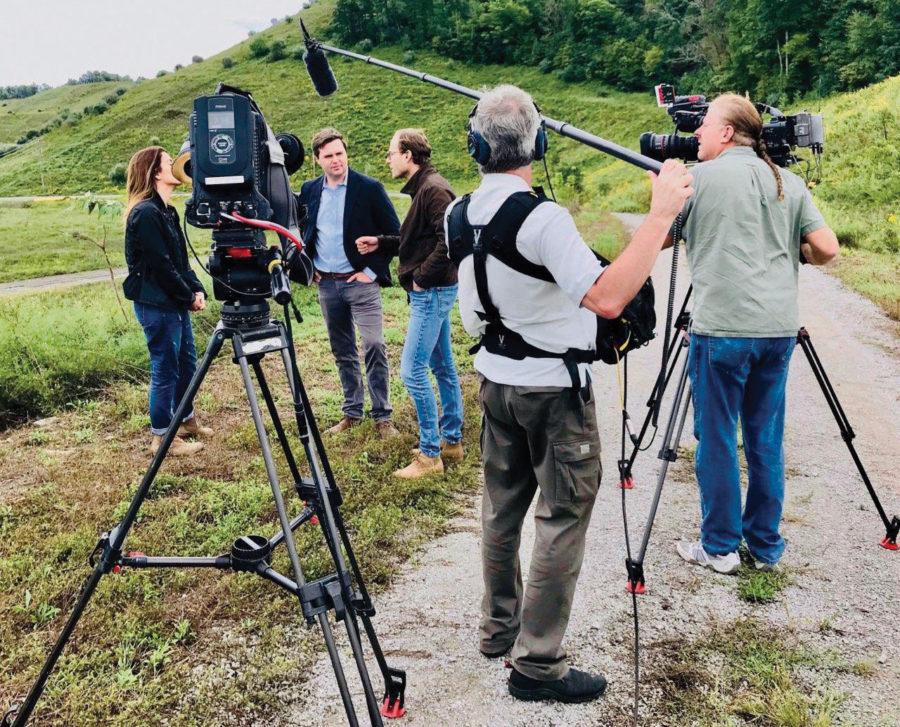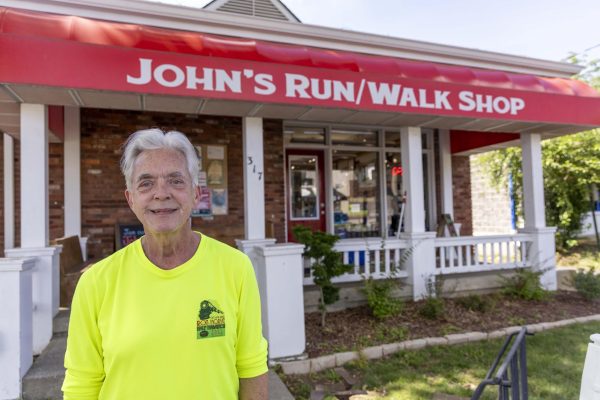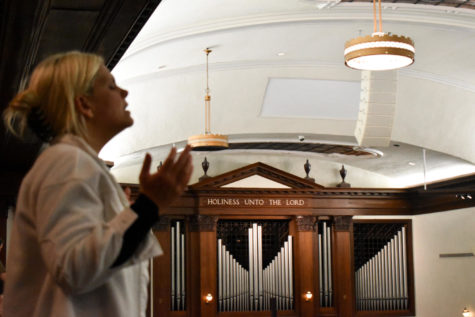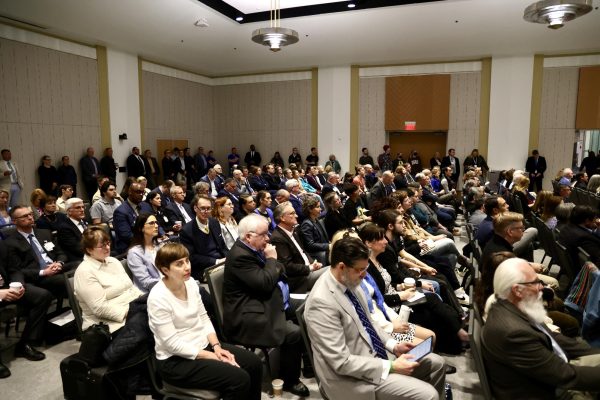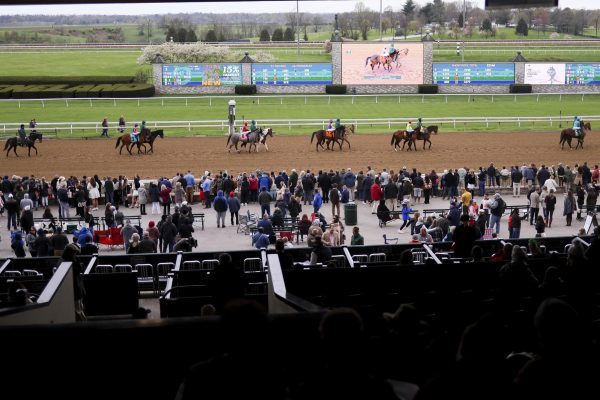With ‘America’s largest greenhouses,’ UK alums are working to make a difference for Eastern Kentucky
April 1, 2019
The momentum behind a UK alumnus’s agricultural-tech business is attracting global attention. Meanwhile, the company’s growing team is looking inward and working to redefine capital and consumption in rural Kentucky.
That company is AppHarvest, an agrobusiness that seeks to create long-term employment opportunities in Eastern Kentucky, an area of the country that has been overlooked by venture capitalists and investors.
AppHarvest is currently building “America’s largest greenhouses” in Morehead, Kentucky, a town that has been dramatically affected by recent changes in the coal industry. In the wake of increasing unemployment, areas of Eastern Kentucky have seen a rise in opioid addiction rates and the number of residents living below the poverty line.
“Desperate times call for innovation,” AppHarvest CEO and UK alum Jonathan Webb said, sitting in AppHarvest’s downtown Lexington office. “We have had desperate times in the eastern part of our state. Many regions of the country have been hit hard.”
Just 24 hours before this, Webb was in Washington D.C. for a conference. The weekend before that, his company was featured on the popular national news show “60 Minutes.”
The increasing attention on AppHarvest – which includes financial and advisory support from former CEO of AOL Steve Case and “Hillbilly Elegy” author J.D. Vance – is a testament to the company’s innovative plan for commercial agriculture.
In the short term, AppHarvest’s greenhouse project will reportedly create more than 120 jobs in the area. These jobs will pay at least $12 an hour, and some will go to recovering drug addicts post-rehabilitation. Other company resources are being used to teach Shelby Valley High School students about sustainable agriculture in container units. This project has been spearheaded by former UK basketball player and AppHarvest Community Director Ramel Bradley.
For Bradley, many problems in Eastern Kentucky are created by food. But luckily, food also presents a solution.
“Highest obesity rates, diabetes, cancer – all these things are affecting communities in Eastern Kentucky,” Bradley said. “And these things affect me deeply, to my core… it’s like 25, 30 million people suffering from these preventable diseases. We can change that.”
Bradley’s work with Shelby Valley High School students has also generated buzz around the country. Earlier this month, TEDx hosted its first Appalachian event in TEDxCorbin, where Shelby Valley High student Olivia Thornsbury spoke about her classmates’ work growing non-GMO, chemical-free produce in AppHarvest’s container unit.
The project has inspired strong passion in several Shelby Valley High students.
“Kids have been showing up an hour and a half before school, 6:30 in the morning,” Webb said. “School’s been canceled because of snow days – they’re still showing up. The passion is there. It’s real.”
“We’re gonna build the largest greenhouses in the country in Eastern Kentucky, but steel and glass is not gonna define AppHarvest,” Webb added. “It’s the people of the region… It’s not just us building this. It’s gonna take off like wildfire.”
Webb described AppHarvest’s Kentuckian-centric vision as both “warm and fuzzy” and “a smart business move.” He said valuable human resources have been ignored for too long, in part because investors see areas like Eastern Kentucky as “coal country” and little else.
“Coal did not power our country,” Webb said. “Coal is, in essence, a black piece of material inside the earth. It’s the people in those communities that extracted the coal that powered the country. Those are some of the hardest-working men and women in our country.”
A Kentucky native and graduate of UK’s Gatton College of Business, Webb has seen firsthand the negative effects of unemployment in underserved areas of the state. He said some of these struggles have arisen from a “coordinated effort” to shrink the coal industry from the outside.
“To me, the problem is that the biggest governmental groups across the country and around the world refused to put the resources on the ground in the region to understand the effects of what their campaigns did,” Webb said. “It’s easy for people to sit on the outside and destroy the coal communities that power this country. What’s hard to do is… work together to build something.”
“Something” for Webb and Bradley is AppHarvest. But they can’t do it alone.
“AppHarvest is not gonna be a silver bullet,” Webb said. “We do need people inside of our state – young, passionate people – that don’t just leave our state… but stay inside of our state and re-imagine what’s possible. And let’s create something together.”









































































































































